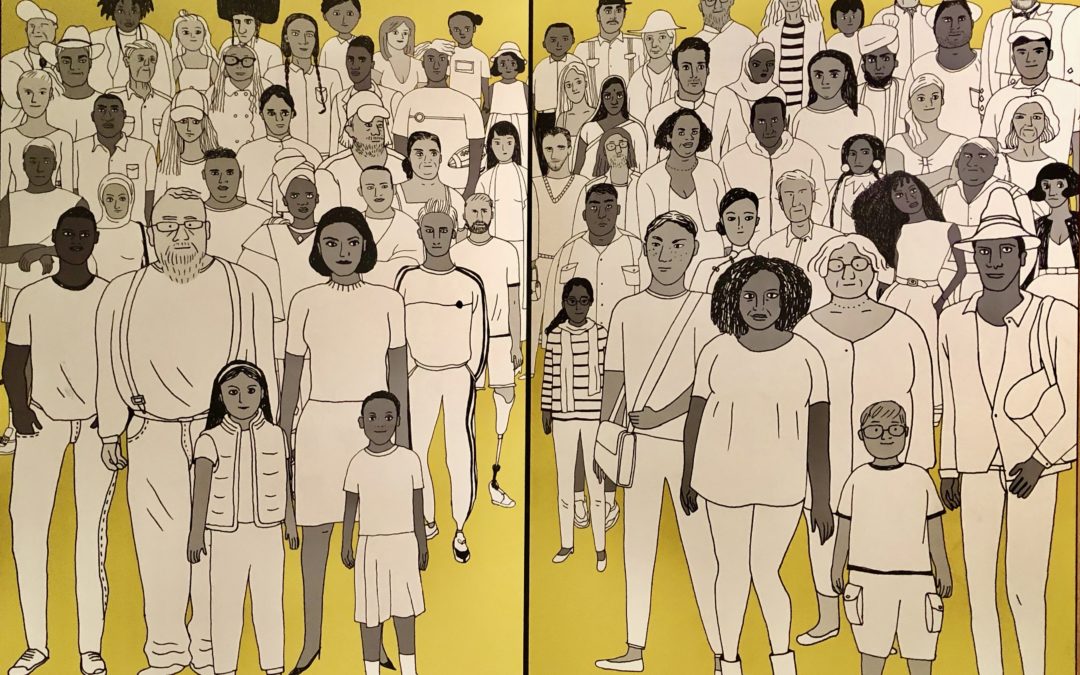As a first-generation Latina who’s grown up witnessing and experiencing our nation’s ever-evolving relationship with race and discrimination, I’ve always been drawn towards conversations and initiatives that revolve around these issues. I tend to view social issues through an intersectional lens. This means that, at least from my perspective, gender, class, and race are embedded within all our institutions and affect the way that each of us uniquely, and collectively, perceives our social world. As a result, many of my academic and personal interests center around racial narratives and inequities, with the hope of understanding how we can bridge our cultural differences to effectively address systemic inequities.
That’s to say that I was skeptical when I found out that I would be interning at Living Cities, a nonprofit organization that is committed to improving the economic well-being of low-income communities through a cross-sectored approach. I would specifically be working on their City Accelerator initiative, which works with local governments to support and engage entrepreneurs of color. Considering I had little to no experience with entrepreneurship or working with local governments, I felt anxious and highly unprepared for the work I was about to undertake. While I remembered mentioning in my interview that I would be open to working outside of my personal interests, this match didn’t make a whole lot of sense to me…initially.
Once I started to look through Living Cities’ website, however, I began to understand how my passions and their mission were actually closely aligned. At the core of their work, Living Cities emphasizes the importance of racial equity. Not just equality, but equity. They understand that racism is at the root of so many of the problems they’re trying to solve. And as a result of discriminatory policies and structures, people of color are disadvantaged against their white peers to the point where seeking racial equality is no longer enough. Through my conversations with Ben Hecht, CEO of Living Cities, and with other staff members, I truly began to understand the concept of racial equity and why it’s so important that Living Cities emphasizes this important distinction. When we view racial equity as our goal, we’re essentially working towards a future where one’s racial identity no longer serves as a predictor of our socio-economic well-being. To accomplish this, we need to systematically address root causes (such as policies, practices, and cultural attitudes), not just their representations.
In discussing the City Accelerator initiative with Elizabeth Reynoso, Associate Director of Public Sector Innovation, she helped me see the importance of mobilizing local governments towards equitable practices that empower minority-owned businesses within their communities. While I may not entirely comprehend every single detail about procurement or municipal innovation, I do understand and emphatically agree with the overall mission of making sure that entrepreneurs of color have access to the resources they need to thrive. I feel lucky to intern with an organization that consciously works towards racial equity and inclusion across their work and actively tackles issues that many others would be too afraid to even address. Now I no longer doubt why I was matched with Living Cities and instead, embrace the opportunity to pursue my passions within an arena that challenges me to view the multiple intersections that exist in our social structures. As Dr. Beverly Daniel Tatum states in her book, Why Are All the Black Kids Sitting Together in the Cafeteria?, “we must begin to speak…I have seen that meaningful dialogue can lead to effective action. Change is possible.”

